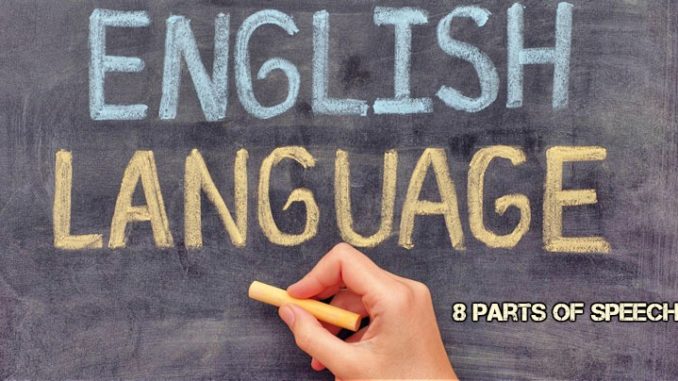
In This Article
- Basic English Grammar
- Grammar Topics
- 8 Parts of Speech
- Important Grammar Lessons
- Sentence examples of Grammar topics
8 Parts of Speech of English Language
1. Noun

2. Pronoun


A reflexive pronoun is generally in the case when an object of a sentence is the same as the subject in sentence. Each personal pronoun (such as I, you,he and she) has its own reflexive form:
- I — myself
- you — yourself/yourselves
- he — himself
- she — herself
- one — oneself
- it — itself
- we — ourselves
- they — themselves
3. Prepositions
Preposition is a word which is used before a Noun or a pronoun and talks about the relationship between the noun/ pronoun and the other part of the sentence. It will be more clear with the help of examples
Some common examples of the prepositions.
Among, between, after, on,in, under, over, between, beside, besides, in spite of, for, since, despite, within, into, onto, upon, in front of, across, through, over, till, until etc
1. He put the book on the table
2. He is writing a letter with the fountain pen.
3. When earthquake came the students and teachers hid themselves under the bench.
Description and usage of some selected prepositions
Among: it is used to show association with 2 or more than two things in number.
Ex: He distributed the sweets among his classmates.
Between: This preposition is used to show association between of 2 things. Ex
The match between India and Pakistan has been delayed due bad weather.
Beside: by the side of
Rajesh always sit beside Sonu in the classroom.
Besides: with addition to
Besides being a good student be is also a good sportsman.
For: it denotes the period of time.
Ajay has been studying for 2 hrs.
He kept himself busy in business for 8 years.
Since: is used to denote the point of time.
Mrs Verma has been teaching in this college since 1999.
4. Verb

5. Adjective
6. Adverb
7. Conjunction

Conjunction is an important topic out of the 8 Parts of Speech in English Grammar. Conjunction is a word or group of words that connects phrase, clause or 2 sentences.
Ex. Jyoti and Rahul are best friends.
BJP and Congress are the 2 main parties of India.
Rahul’s father told him that he should wake up early in the morning.
Some of the common Conjunctions are mentioned below. Have a look:-
And, As well as, therefore, neither…nor, either..or, as…as, When, As if, Although, As far as, Such..that, whenever, wherever, because etc.
Conjunctions are of 2 types:
- Coordinating Conjunction
- Sub-ordinating Conjuntion
Ex. of Coordinating Conjunction
- He reached the school but no one was there.
- Rahul prepared well for exam and topped his class.
Coordinating Conjunctions are of 4 types:
- Cumulative Conjunction
- Alternative Conjunction
- Adversative Conjunction
- Illative Conjunction
2. Subordinate Conjunctions In this type of Conjunctions, there are 2 clauses, the Principal Clause and the subordinate clause. The subordinate clause is dependent on the Principal Clause. Examples are given below:-
When the policeman saw a fast driving car, he stopped it.
She could not attend the class because she was feeling unwell.
Since he has deceived me earlier, I don’t trust him anymore.
He could not talk to the girl because he is very shy.
8. Interjection
Last in our 8 Parts of Speech, we have Interjection. Interjection is not much important in Grammar, so many a times it is ignored by the Grammar teachers. Interjection are words which are used just to convey feelings or emotions. They have nothing to do with the meaning or sense of the sentences. We will look at some examples of Interjection to make it more clear.
“Oh no, I forgot that teacher has to take a grammar test today.”
“So, he is calling you again, huh?”
“Aha, what a yummy cake you have prepared!”
List of common Interjections:-
- Aha
- Boo
- Crud
- Dang
- Eew
- Gosh
- Goodness
- Ha
- Oh
- Oops
- Oh no
- Ouch
- Rats
- Shoot
So, this was all about the 8 Parts of Speech in English Grammar. We now hope that you have understood all the concepts clearly. In our coming posts, we will discuss each of the Grammar topics and Parts of Speech separately. Don’t forget to share this article with others if you found it useful. Stay tuned with Careeradvice4u for more Exam updates and online learning.
- DAV Class 7 Science Solutions With Explanations: All Chapters - February 6, 2022
- Pollution of Water Question Answers | DAV Class 8 Science - February 4, 2022
- Fabric from Fibre Solutions | DAV Class7 Science Chapter 14 - January 25, 2022

Leave a Reply